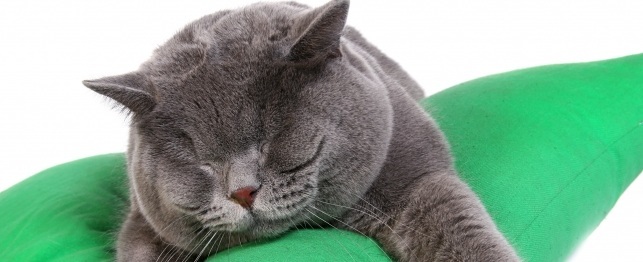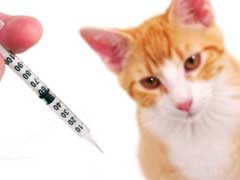
Cats
Acute vomiting and diarrhea are characterized by a sudden onset and short duration of less than two to three weeks. Acute vomiting, a reflex act that results in the forceful ejection of gastric (stomach) and/or duodenal (intestinal) contents through the mouth, and diarrhea, an increase in fecal water content with an accompanying increase in the frequency, fluidity, or volume of bowel movements, are both extremely common in the cat.
An occasional bout of vomiting and diarrhea is quite common in cats however, severe, acute vomiting and diarrhea is not normal, and can be associated with life threatening illnesses. It can cause extreme fluid loss, acid-base imbalance, and electrolyte disturbance.
What To Watch For
Many cases of acute vomiting and diarrhea are short lived, resolve easily and do not require an extensive diagnostic evaluation. Diagnostics should be performed on those pets that are having severe vomiting and diarrhea, are exhibiting other systemic signs of illness, or when the vomitus or stool contains blood. These tests may include:
There are several things your veterinarian might recommend to treat your cat symptomatically. The principal goals of symptomatic therapy are to restore and maintain fluid and electrolyte imbalances and to completely rest the gastrointestinal tract.
Call your veterinarian, and follow all recommendations regarding feeding and medication. This will probably include withholding all food and water. Observe your cat very closely. If clinical signs are not improving over a day or two, and/or your cat is getting worse, have your pet evaluated at once.
 Facial Swelling in Cats
Facial Swelling in Cats
Facial Swelling in Cats
Facial Swelling in Cats
 Cat Constipation Home Remedies
While
Cat Constipation Home Remedies
While
 Epilepsy in Cats Causes
Epilep
Epilepsy in Cats Causes
Epilep
 Top 10 Things to Know About Cat Vaccinations
Cat va
Top 10 Things to Know About Cat Vaccinations
Cat va
 Patience, Pet Insurance And Other Secrets Of Moving Your Cats In With Other Cats
In tay rolle coaster economy, a lot of people cannot easily
Patience, Pet Insurance And Other Secrets Of Moving Your Cats In With Other Cats
In tay rolle coaster economy, a lot of people cannot easily
Copyright © 2005-2016 Pet Information All Rights Reserved
Contact us: www162date@outlook.com